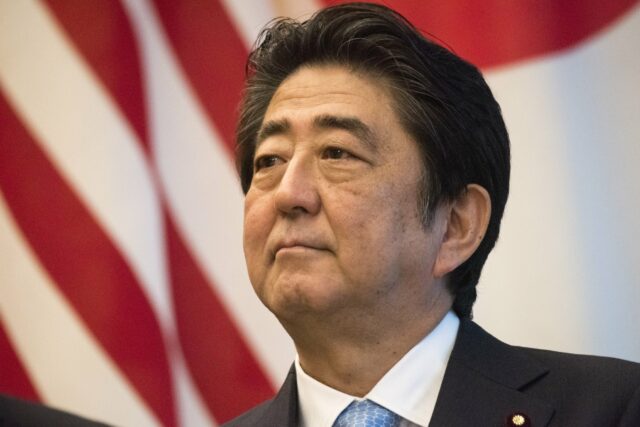Calling all plantitos and plantitas: The details of KSK
(Part 2)
There is a providential feature of the Kabalikat Sa Kabuhayan (KSK) program of the SM Foundation, done in partnership with Harbest Agribusiness Corp., that fits perfectly into the proposal of Secretary of Finance Benjamin Diokno for LGU heads to use part of the additional funding they will receive under the Mandanas-Garcia ruling to improve food supply at their respective levels.
The late Henry Sy, Sr. (and later his daughter, Tessie Sy Coson) had the very practical foresight to, from the very beginning, involve the Local Government Units (LGUs) in the implementation of the KSK. With the LGUs providing the leadership in the respective locations where the projects are located, other major stakeholders in improving agricultural productivity — NGOs, state universities and colleges (SUCs), cooperatives and other farmers’ associations — have been mobilized. The SM Food Group (SM Supermarket, SAVEMORE, SM Hypermart, and the SM Mall Management) provides guidance, encouragement and marketing support to the participants.
To inspire as many LGUs and other support groups to follow the lead of the SM Foundation, Inc. (SMFI) in collaboration with Harbest, let me describe in detail what this program is all about.
This skills training program is made up of 12 weekly training modules. The training day is fixed by Harbest in consultation with the LGUs and the participants. The training usually lasts for the whole day, i.e., 8 a.m. to 4 p.m. The famous German dualvoc (dual training) concept is employed. This means combining theoretical instruction with hands-on field practice. There are technical briefings with power point presentations meant to explain the agricultural technology being taught. Each session will have specific topics and procedures. The briefing is then followed by an actual field practice in which everyone is expected to participate actively.
The topics include project orientation, land preparation, seedling propagation, transplanting, fertilization, irrigation, plant pests and diseases-identification and control, crop management, harvesting and marketing. The training usually culminates with a harvest festival and graduation.
It is obvious from this detailed description of the curriculum that KSK programs closely resemble the master gardening programs described earlier as offered by some academic institutions in the US. At some point during the Marcos Jr. presidential term, the initiative spreading this movement should shift to the SUCs in tandem with the respective LGUs. It is only logical to expect that the SUCs in the Ilocos region — the bailiwick of the President — should be the most active in implementing these training programs. Beyond training actual small farmers to improve their capability of producing high-value crops, these programs should produce many master gardeners who will be the trainors themselves of farmers and would-be farmers. I would like to see numerous children of middle-class households being attracted to the occupation of master gardener.
To literally whet the appetite of our government leaders in the incoming Administration, let me enumerate in detail the types of food crops that can be significantly increased in a short period of time if the KSK program is spread widely all over the country. Under the KSK, open field planting of more than 10 crops of different varieties will be done. These are ampalaya, patola, upo, talong, kamatis, sitao, okra, kalabasa, lettuce, petchay, mustasa, kangkong, labanos, sili, melon, pakwan and honeydew melon (bitter melon, Luffa acutangula or silk gourd, bottle gourd, eggplant, tomato, string beans, okra, pumpkin, lettuce, Chinese cabbage, mustard, swamp cabbage, white raddish, chili, melon, watermelon, and honeydew melon) for the lowland. For projects in upland areas (like Tagaytay, Mountain Provinces and Bukidnon), broccoli, cauliflower, cabbage, and bell pepper can be included. The final list of crops under the KSK was usually decided among Harbest, SMFI, and the beneficiary.
The participants were strictly limited to 100 small vegetable farmers and 10 agriculturists (who would be trained to become future trainors or master gardeners) from the participating LGUs. A few established and big commercial growers may participate with prior approval. The trainees are selected by the partner LGUs, the Department of Agriculture (DA), the Department of Social Welfare and Development (DSWD) and other entities designated by SMFI as project partners. The final list of participants is decided by DA, DSWD and Harbest for submission to SMFI and final decision.
To instill from the beginning the value of discipline and perseverance, all participants should be committed to attending all the training sessions. Two absences shall be cause for the dropping of the participant from the list.
To serve as a model for other partnerships that may be crafted by similarly motivated private foundations, or NGOs who may want to replicate the KSK program of the SM Foundation, Inc., it would be useful to describe here the roles played by the different partners in the original KSK.
SM Foundation, Inc. is the propriety owner of the SMFI KSK farmers training program that is being implemented by Harbest with the participation of the DA, DSWD, LGUs, farmers and other entities. SMFI prepares the schedule of launching and graduation of each KSK training batch. It also provides the funds per project to cover the training fee for the Harbest training module, farm inputs from Harbest and expenses for the launching and graduation ceremonies. Disbursements are under the control of SMFI, which also shall have the sole prerogative on the determination of the project sites. The final location of the venue is decided upon evaluation of prospective partners provided by Harbest.
On its part, Harbest makes the final selection of the venue based on the project sites recommended by SMFI. It will then inform and orient all prospective beneficiaries on the KSK program to be implemented in each site. Harbest will then review the list of participants provided by the participating LGUs, DSWD and other beneficiaries.
It will be Harbest who will assign the trainors for each program. Harbest trainors are experienced in practical farming technologies and have handled several season-long programs using the dual-tech method. The trainor in charge of each project will implement the weekly training sessions with briefings and hands-on field practice of the participants. He shall make sure that the attendance of the participants is documented properly. He shall organize the participants into groups, with a group leader each. Each group is given very specific assignments for every session. The trainor also assures that the standing crops are properly maintained and that all the necessary procedures are followed in the course of the training program to optimize the results of the program.
All direct inputs, such as seeds, fertilizers, pest and disease controls, mulching film, seedling tray, medium, bamboo trellis, trellis nets and other direct supplies for each project shall be supplied by Harbest.
The beneficiary or host LGU shall provide the 5,000 square meters of land to be used free of charge in the KSK project. This should be flat or slightly rolling, with sufficient water supply for irrigation, cleared and ready for cultivation and planting, accessible, not flood prone and with proper drainage canals, secured from stray animals and vandals. A project manager shall be appointed by the host LGU who will coordinate the listing of participants, preparation of the project venue, coordinate the attendance of the participants, and coordinate with other participating LGUs and beneficiaries, if any. He/she shall be responsible for the accounting of the inputs and produce harvested from the field. He/she shall also coordinate with the Harbest trainors on each training session. The LGU should provide two full-time farm laborers who will do the daily watering and maintenance of the standing crops.
A training hall or tent should be made available on the training site for the briefings with power point presentations. A sound system should be provided. Electricity should be available. Chairs for the participants should be provided for free on site, and made available also for the culminating festival activities. Needless to say, restrooms should be available within the project site. Living quarters near the training site should be provided for the trainors in case there will be need for overnight stays during the training sessions. This is especially required if the sites are in remote places.
The two most relevant government departments, as mentioned above, are the DA and the DSWD. The DA, through its regional and provincial officers, shall provide guidance on the selection of beneficiaries and determine the viability of the sites that are prospects for the training program. It shall also provide logistics support for the participants according to the approved support program. In turn, the DSWD will select Pantawid Pampamilya prospective participants near the training site for the KSK training program. The DSWD will also assign trainors for the values formation component of the training program. These trainors shall conduct weekly sessions on social empowerment like capacity building, values formation, community organizing, basic business accounting and financial literacy. The DSWD training modules will be incorporated into the weekly training program in coordination with Harbest.
Although this KSK program was a pioneering project of the SM Foundation, Inc., thanks to the foresight and entrepreneurial genius of the late Henry Sy, Sr., Harbest Agribusiness Corp. is willing to partner with other private groups or LGUs to implement parallel programs. The priority will be in the training of master gardeners or trainors so that the multiplier effect can be significantly increased. For those interested in implementing a similar program, they may contact the CEO of Harbest Agribusiness Corp., Arsenio Barcelona at arseniobarcelona@gmail.com.
(To be continued.)
Bernardo M. Villegas has a Ph.D. in Economics from Harvard, is professor emeritus at the University of Asia and the Pacific, and a visiting professor at the IESE Business School in Barcelona, Spain. He was a member of the 1986 Constitutional Commission.












